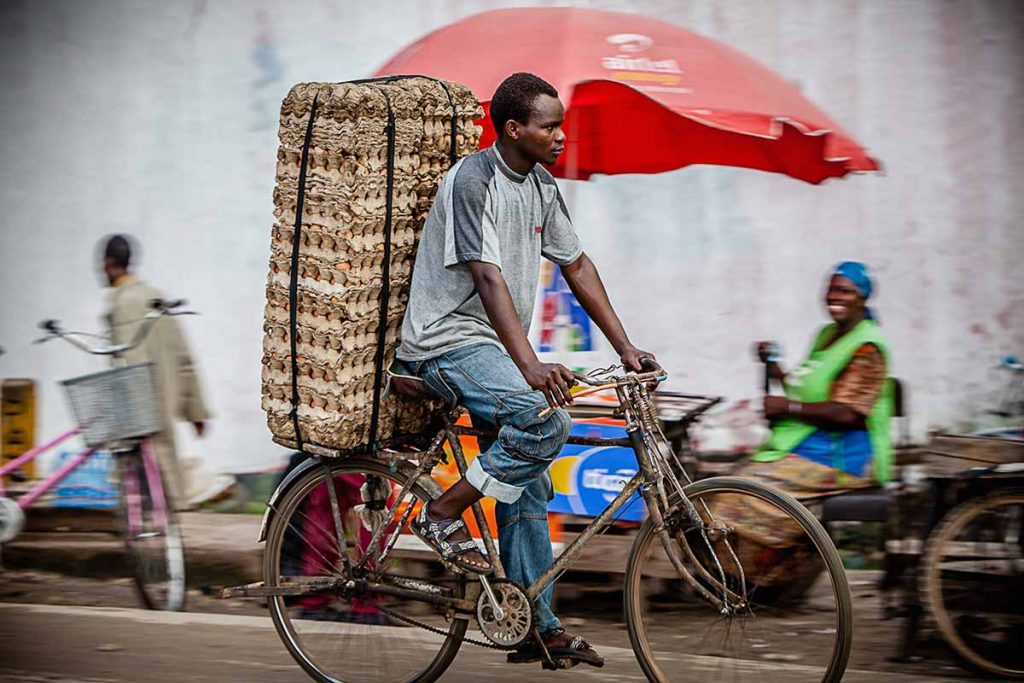
The rise and growth of e-commerce in the world and primarily in Africa has created a lot of business opportunities, not only in urban but also in rural areas. The good news is that there is undoubtedly increased connectivity, reaching even the previously inaccessible remote villages across the continent and connecting them with e-commerce. Over the past approximately three years, the market has been noted to move substantially in the direction of developing logistics meant to tear down barriers for e-commerce penetration in rural markets. Consequently, online retailers can now reach customers in remote cities, while locals have access to a variety of products from major urban cities.

While over 50% of the world is now connected to the internet, only 36% of the African population is, and even more poorly served are rural areas. This penetration rate is however increasing across Africa, and together with that of the mobile (now at about 80%), represent a potentially major growth lever as well as a significant growth opportunity for e-commerce to serve this otherwise underserved demographic. With this in mind, it is important for e-commerce players to eliminate roadblocks that hinder penetration of the rural economy.
Fulfilling the needs of the rural e-commerce consumer requires bespoke approaches, that will especially break the mistrust around online commerce. For instance, e-commerce players need to provide digital literacy programs towards educating users around online purchase processes. Moreover, platforms should incorporate several local languages in the markets they operate in; which should also be the case for their customer service departments to drive better conversations and connection with the customers. Understanding local languages will also come in handy when carrying out ground activations for new customers and vendors looking to move their businesses online.
Consumers with varying spending powers require provision for more diversified products to choose from. In an article she wrote for the UNCTAD in October 2018, Juliet Anammah, CEO Jumia Nigeria noted that “the reach of digital platforms can no longer be contained and captured by a small group to the exclusion of others. The primary means by which digital drives inclusion is via providing accessible information on products, services and price as well as connecting buyers and sellers who may never have connected through traditional channels.” Variety is key; and it thus requires breaking down your target markets and understanding their consumption behaviors to fully meet their needs and expectations.
Truth is, to successfully make in-roads in reaching and gaining the trust of rural consumers, e-commerce players must continuously remain innovative. One such company piloting diverse strategies to reach and activate rural e-commerce consumption is Jumia, operating in 14 African countries. 25% of deliveries made by Jumia are in remote areas, in regions where choices for products are extremely limited for consumers.
To achieve this, the Pan-African e-commerce platform is expanding into rural areas by building agent networks through its JForce program, allowing agents to traverse the cities and make purchases for their clients for a commission. Besides, it has also set up more than 380 pick up stations and drop off locations to facilitate deliveries for sellers and consumers even in remote areas. Its recent partnership with Vivo Energy will enable more Jumia customers to place and pay for orders at select retail service stations, which will also double as pick up and drop off points.
Further, Jumia’s digital platform offers diversified services and products, from home appliances to electronics, mobiles, fashion apparels, fast-moving consumer goods (FMCGs) and on-demand services at relatively affordable prices. This has allowed them to attract every possible customer and vendor in the markets they operate.
With fulfillment and transport infrastructure being among barriers for the growth of rural e-commerce, Jumia comes up as one among companies working to smoothen out the delivery processes both in major cities and in remote areas that are otherwise difficult to access. This is by building a well-established logistics system using Machine Learning, relying on GPS enabled delivery apps. Jumia logistics network includes 100+ partners ranging from individual entrepreneurs to large companies, enabling the company to handle over 13.4 million packages in 2018 across Africa.
Incorporating different payment methods has also enabled the e-commerce platform to gain the trust of more customers in the continent. Cash on Delivery remains the most preferred method among online consumers, especially in rural markets that are highly-dependent on touch-and-feel. Rural mobile money agents have also pushed the growth of mobile payments in remote areas, further facilitating the spread of e-commerce even in places with major unbanked populations.
The intrinsic value in African rural e-commerce cannot be overlooked. The progressive success of early entrants of the market is a clear indication of the existing huge potential of this unexplored rural sector. The rising number of e-commerce users on platforms like Jumia further cements the need for more innovative ways to satiate the growing needs of a more diverse African consumer.
By Josephine Wawira
Now Read: Logistics challenges facing eCommerce in Africa

